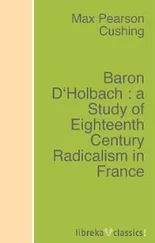John Ashton - Eighteenth Century Waifs
Здесь есть возможность читать онлайн «John Ashton - Eighteenth Century Waifs» — ознакомительный отрывок электронной книги совершенно бесплатно, а после прочтения отрывка купить полную версию. В некоторых случаях можно слушать аудио, скачать через торрент в формате fb2 и присутствует краткое содержание. Жанр: foreign_antique, foreign_prose, на английском языке. Описание произведения, (предисловие) а так же отзывы посетителей доступны на портале библиотеки ЛибКат.
- Название:Eighteenth Century Waifs
- Автор:
- Жанр:
- Год:неизвестен
- ISBN:нет данных
- Рейтинг книги:4 / 5. Голосов: 1
-
Избранное:Добавить в избранное
- Отзывы:
-
Ваша оценка:
- 80
- 1
- 2
- 3
- 4
- 5
Eighteenth Century Waifs: краткое содержание, описание и аннотация
Предлагаем к чтению аннотацию, описание, краткое содержание или предисловие (зависит от того, что написал сам автор книги «Eighteenth Century Waifs»). Если вы не нашли необходимую информацию о книге — напишите в комментариях, мы постараемся отыскать её.
Eighteenth Century Waifs — читать онлайн ознакомительный отрывок
Ниже представлен текст книги, разбитый по страницам. Система сохранения места последней прочитанной страницы, позволяет с удобством читать онлайн бесплатно книгу «Eighteenth Century Waifs», без необходимости каждый раз заново искать на чём Вы остановились. Поставьте закладку, и сможете в любой момент перейти на страницу, на которой закончили чтение.
Интервал:
Закладка:
The people observed as Holy-days Christmas, Easter, Good Friday, St. Columba’s Day, and All Saints. They ceased all work at midnight on Saturday, and kept the Sabbath, in this respect, very strictly, only resuming their ordinary avocations on Monday morning. They believed in the Trinity, and in a future state of happiness and misery, and that God ordains all things. They took great care with their churchyard, which they fenced round with stone, so that no cattle should desecrate God’s Acre, and they had a peculiar belief in the embodiment of spirits, and fancied that they could, at will, incorporate themselves with the rocks, hills, etc.
Of the three chapels, one only seems to have been used, and this, not being large enough to accommodate the islanders, the whole of the inhabitants would assemble, on every Sunday morning, in the churchyard, and there devoutly say the Lord’s Prayer, the Creed, and the Ten Commandments. This form of worship was simple enough; but it seems to have been of recent introduction — i. e. , about the beginning of the seventeenth century; when, somehow or other, there was a man upon the island who passed for a Roman Catholic priest, but who was so ignorant that he did not know the Lord’s Prayer, the Creed, or the Decalogue correctly; and, consequently, he taught the poor people an incorrect version, but to him they owed the crucifix, and the observance of the Holy-days before mentioned, and with this teacher they were content until the year 1641, when one Coll McDonald, or Ketoch, fled from Ireland, and, with a few men, landed at St. Kilda, where he lived in amity with the inhabitants for nearly a year. He rebuked the so-called priest for his ignorance, and he taught the poor simple folk the correct version of the text of their very primitive worship – in fine, he was considered so far superior to the priest, that the natives would fain have deposed the latter; but this McDonald would not suffer.
Martin Martin, 6 6 ‘A Late Voyage to St. Kilda, the Remotest of all the Hebrides,’ etc., London, 1698.
writing in 1698, describes the happy condition of the islanders at that date. ‘The Inhabitants of St. Kilda are much happier than the generality of Mankind, as being almost the only People in the World who feel the sweetness of true Liberty: What the Condition of the People in the Golden Age is feign’d by the Poets to be, that theirs really is; I mean, in Innocency and Simplicity, Purity, Mutual Love, and Cordial Friendship, free from solicitous Cares and anxious Covetousness; from Envy, Deceit, and Dissimulation; from Ambition and Pride, and the Consequences that attend them. They are altogether ignorant of the Vices of Foreigners, and governed by the Dictates of Reason and Christianity, as it was first delivered to them by those Heroick Souls whose Zeal moved them to undergo danger and trouble, to plant Religion here in one of the remotest Corners of the World.’
This Eden, however, was doomed to have its Serpent, and these simple folk were fated to be led into error by a man who seems to have been physically above the average of the islanders, for he is described as ‘a Comely, well-proportioned fellow, Red-hair’d, and exceeding all the Inhabitants of St. Kilda in Strength, Climbing, &c.’ Naturally he was illiterate, for the means of culture were altogether lacking in that lonely isle; but he was above his fellows, inasmuch as he was a poet, and, moreover, he claimed to have the gift of ‘second sight,’ a pretension which would naturally cause him to be looked up to by these Gaelic islanders. These qualifications which Roderick (for such was his name) claimed, naturally pointed to his becoming a leader of some sort; and he seems to have entered upon his vocation early in life, for, when we first hear of him in his public capacity, he was but eighteen years of age.
We have read how strictly the islands kept the Sabbath, and Roderick seems to have been the first to break through their customs – by going fishing on that day. As, according to all moral ethics, something dreadful will surely overtake the Sabbath breaker, it is comforting to know that Roderick formed no exception to the rule. One Sunday he committed the heinous and, hitherto, unknown sin of fishing – and, on his return, he declared that, as he was coming home, a ‘Man, dressed in a Cloak and Hat,’ suddenly appeared in the road before him. Needless to say, this apparition frightened him, and he fell upon his face before the supernatural being, but the Man desired him not to be afraid, for he was John the Baptist, who had come specially from Heaven, the bearer of good tidings to the inhabitants of St. Kilda, and with a divine commission to instruct Roderick in religious matters, which instruction he was to impart to his neighbours for their spiritual welfare.
Roderick diffidently objected to thus being made a medium, and alleged his incapacity to receive such revelations and act upon them; but the pseudo-saint cheered him, and bade him be of good courage, declaring that he would immediately make him fit for his predestined purpose, and, according to the poor fanatic’s account, gave him the following instructions:
It was to be of primary importance, and as a visible sign of their belief, that his followers should observe Friday as a strict fast – so strict, indeed, that not a particle of food of any description must pass their lips on that day, nor might they even indulge in a pinch of snuff – a small luxury which they dearly loved. He next promulgated the comforting assurance that many of the deceased islanders were Saints in Heaven, and there interceded for those living; that everyone had his own particular advocate, and, on the anniversary of the day peculiar to each Saint, his protégé on earth was to make a feast to his neighbours of the very best of his substance, such as mutton, fowls, &c., Roderick, of course, to be the chief and honoured guest on the occasion.
A sheep was to be sacrificed on the threshold of each house by every family (presumably only once a year), and this was to be done in a specially cruel manner, for no knife was to touch it, but its throat was to be hacked with the crooked spades they used in husbandry, whose edges were about half-an-inch thick. This was to be done at night, but no one might partake of the mutton that night under penalty of similarly slaughtering a sheep the next day for every person that had eaten of it. It is difficult to see what was his object in these ordinances – except to make sure of good living at the expense of his poor dupes, who, if they turned refractory, and disobeyed his injunctions, were threatened with the most awful Judgment to come.
That he was keen enough in his own interests is exemplified in one of his promulgations. He picked out a bush upon a rising ground, which he christened ‘John the Baptist’s Bush,’ for there, he declared, the Saint had appeared to him; and this he ordered should be holy ground, which must never be defiled by the tread of sheep or cattle. He also built a wall – certainly not a high one – round it: and should, by chance, any unhappy sheep, in the lightsomeness of its heart, or succumbing to the temptation of the herbage, overleap this wall, and dare to browse upon the sacred soil, it was staightway to be slain – and Roderick and its owner were to eat its carcase. But, as the Saint evidently foresaw that some stiff-necked, and not properly-converted proselyte, might object to this disposition of his personal property and might refuse to have the sheep slaughtered, he commanded that such a recusant should be Anathema, cast out, and excluded from all fellowship, until such time as he saw the error of his ways, recanted, and expiated his sin by permitting the sacrifice.
For discipline must be maintained in a religious body, as well as in a purely secular society; and Roderick had no intention of having his authority disputed. For minor offences he had a cheerful penance. No matter what was the weather, the sinner must strip, and forthwith walk or jump into the water, there to stand until the divinely-inspired one chose to release him, and, if more than one were thus punished at the same time, they were to beguile the moments, and somewhat increase their penance, by pouring cold water upon each other’s heads.
Читать дальшеИнтервал:
Закладка:
Похожие книги на «Eighteenth Century Waifs»
Представляем Вашему вниманию похожие книги на «Eighteenth Century Waifs» списком для выбора. Мы отобрали схожую по названию и смыслу литературу в надежде предоставить читателям больше вариантов отыскать новые, интересные, ещё непрочитанные произведения.
Обсуждение, отзывы о книге «Eighteenth Century Waifs» и просто собственные мнения читателей. Оставьте ваши комментарии, напишите, что Вы думаете о произведении, его смысле или главных героях. Укажите что конкретно понравилось, а что нет, и почему Вы так считаете.












